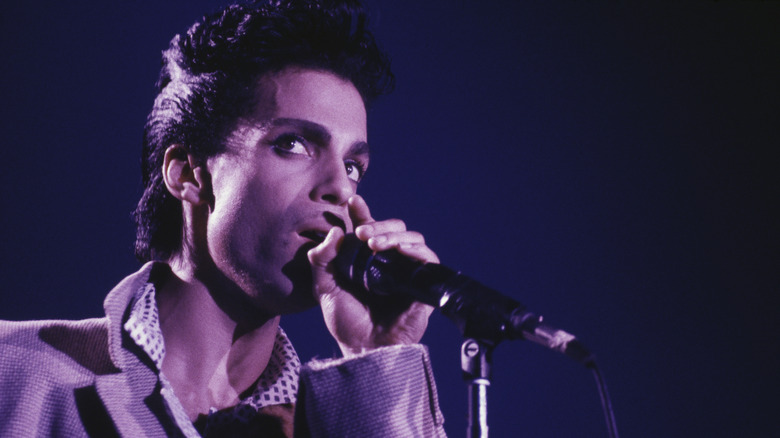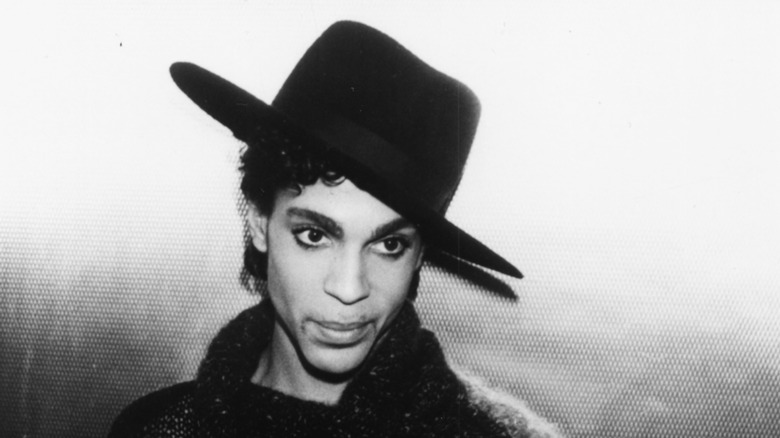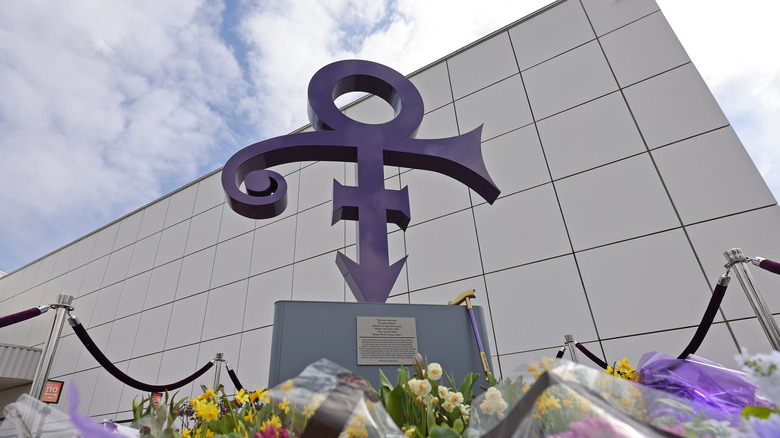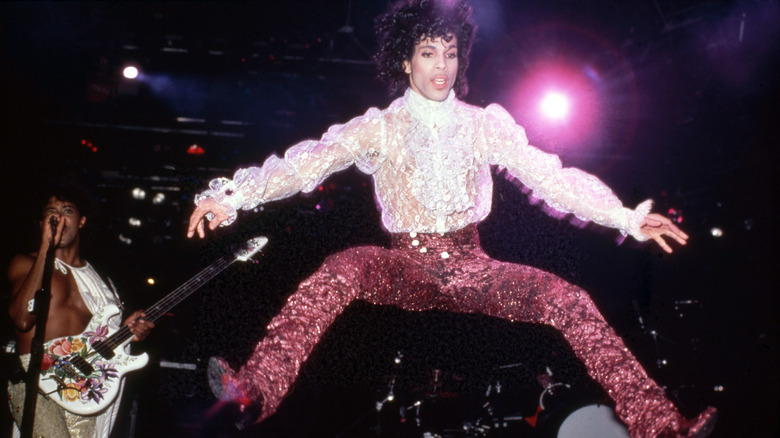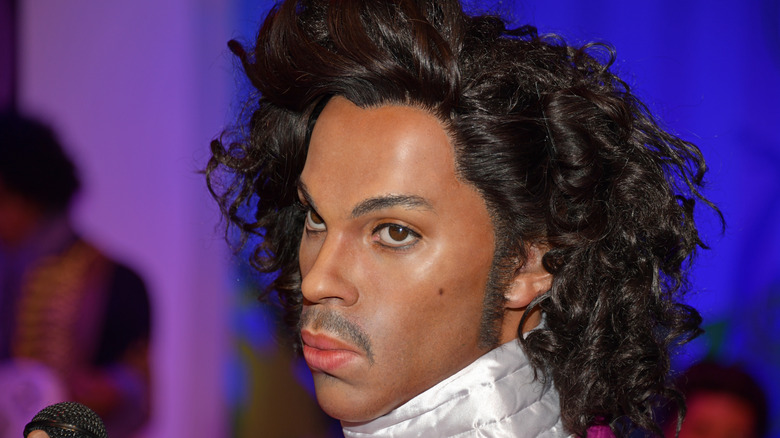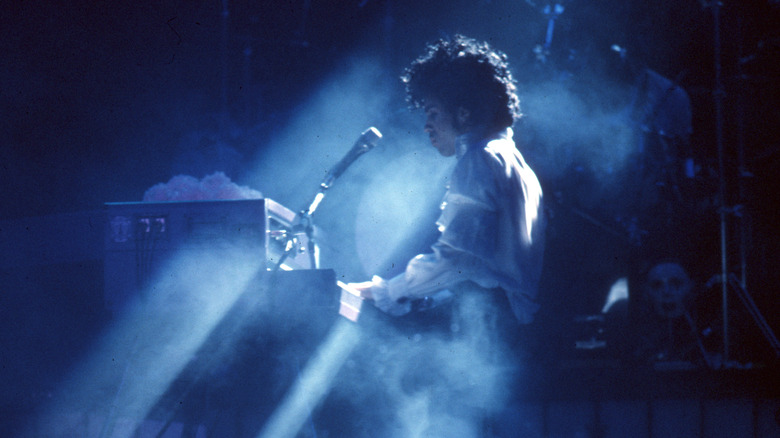What We Learned About Prince's Health After His Death
Prince, the iconic pop artist that energized and transformed the music scene during the 80's and 90's, shocked the world with his death at age 57 in April 2016. On the morning of April 21, Prince was found unresponsive in an elevator at Paisley Park, his estate in suburban Minneapolis, and pronounced dead shortly after.
As shocked family and fans mourned, an investigation got underway that ultimately concluded that Prince's death was the result of what appeared to be an accidental overdose of the powerful opioid fentanyl. There's no evidence of suicide though, and it seems Prince likely thought he was taking Vicodin instead. Mark Metz, Carver County (Minnesota) Attorney, said at a news conference that "In all likelihood, Prince had no idea he was taking a counterfeit pill that could kill him. The evidence demonstrates that Prince thought he was taking Vicodin and not fentanyl" (via NBC News).
Prince suffered from epilepsy as a child
As eulogies poured in, details about Prince's earlier years revealed that he had actually struggled with health issues for years. In a 2009 interview on NPR, Prince spoke for the first time of his painful struggles with epilepsy as a child, saying "I've never spoken about this before but I was born epileptic. I used to have seizures when I was young. My mother and father didn't know what to do or how to handle it but they did the best they could with what little they had."
We don't know how long his struggles with epilepsy lasted, but some medical experts speculate that the disorder may have actually spurred his creativity. Several other extremely talented artists, possibly including Vincent van Gogh and Edgar Allan Poe, have had epilepsy, and research indicates that the disorder can lead to unusual visual creativity (via Medical Daily).
Prince changed his name to a symbol in 1993
Prince also talked about being teased as a child, and how that pain led him to take on a flashy, bold persona. He said, "From that point on, I've been having to deal with a lot of things, getting teased a lot in school. And early in my career I tried to compensate by being as flashy as I could and as noisy as I could." That set the stage for his trademark style, which was at once eccentric, energetic, colorful, and daring.
He continually broke molds in the worlds of music and art, even changing his name from Prince (he was born Prince Rogers Nelson), to an unpronounceable symbol in 1993. Some speculate that the change had less to do with Prince's artistic passion, and more to do with his desire to aggravate Warner Bros., which owned his record label at the time. In 2000, after he'd been released from his contract with Warner Bros., he returned to using the name Prince (via Vox).
Years of performing in heels may have contributed to hip problems
Prince's health issues continued into adulthood. Friends say he suffered from hip and ankle problems that were likely the end result of years of jumping off of speakers and risers while wearing high heels. Prince's friend and former guitarist Dez Dickerson told The Mirror, "We wore them all the time. On stage, we'd wear them as we jumped off 6ft drum risers. We'd even play basketball in high heels. Fast forward a decade or two to the last time I saw Prince and he was wearing these orthopaedic wedged tennis shoes."
"Entertainment Tonight" co-host Kevin Frazier said that "The hip and ankle issues were a problem for him for so long, and for a man who loved to move and dance so much, it really bothered him" (via CBS News).
Since the 1990s, he would also appear regularly with a cane, although no one really knew if it was just a stage prop or if he actually needed the help to get around.
Friends were concerned about Prince's health
In the weeks before his death, those around Prince grew increasingly concerned about his health. In early April, he cancelled concerts in Atlanta because he wasn't feeling well. He did schedule two make-up shows there on April 14, but even those had a hint of something unusual going on. Onstage, Prince apologized to fans for cancelling the previous shows, saying "I was a little under the weather. But we're here now, and I'm going to take this time to thank each and every one of you for coming out and enjoying this time with us" (via E). One concertgoer also related that, oddly, Prince also thanked his doctor more than once onstage, and asked fans to applaud for him.
And on the way back home to Minnesota, Prince's plane made an emergency stop in Illinois, where he was taken by ambulance to a hospital for several hours (via ABC7News).
Prince may have suffered from opioid addiction
Whether Prince suffered from a drug addiction is debated among those in his inner circle. His cousin, Chazz Smith, insisted to ABC7 News that "I can tell you this: What I know is that he was perfectly healthy." But others suspect that, through years of attempting to manage serious pain, it's possible he may have become addicted to opioids.
After Prince's death, investigators found multiple bottles of prescription pain medications in his home. Many were in bottles that were not supplied by the pharmacy. Attorney Mark Metz said "There is no evidence that the pill or pills that actually killed Prince were prescribed by a doctor. There is also no evidence to suggest any other sinister motive, intent or conspiracy to murder Prince. The evidence suggests that Prince had long suffered significant pain, became addicted to pain medications but took efforts to protect his privacy." What is for sure, is that Prince, as a music legend, will not be soon forgotten.

